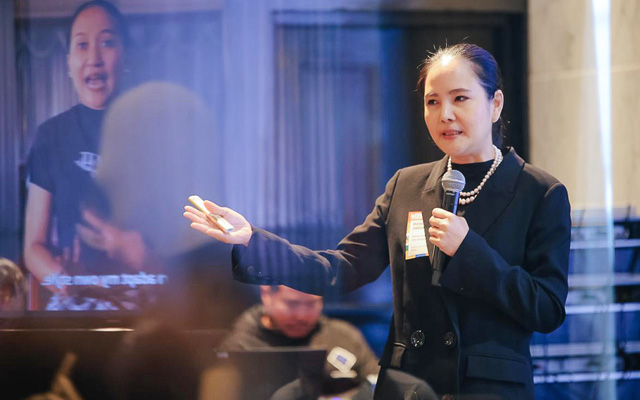
In an increasingly dynamic business events landscape, designing across generations is no longer just a commendable diversity initiative, but a critical business imperative.
This was the compelling message delivered by Malinvisa Sakdiyakorn, assistant professor and academic practitioner at the Business Administration Division of Mahidol University International College, at this Thailand Innovative Meetings Exchange (TIME) 2025, during the Knowledge Exchange segment titled Bridging the Gap: Turning Age Diversity of Generation X, Y & Z into a MICE Advantage.

Malinvisa issued a call to action for the business events industry, urging a holistic approach that reimagines event strategies to accommodate generational diversity with empathy, awareness, and intentional design.
Citing VUCA (Volatility, Uncertainty, Complexity, Ambiguity) and BANI (Brittle, Anxious, Non-linear, Incomprehensible) as frameworks that shape how all generations experience the world today, she said: “We need to design MICE experiences that meet people in the world they’re navigating now.”
“Regardless of age, we’re all experiencing today a VUCA and BANI world driven by rising cost of living, financial insecurity, struggles with work-life balance, mental and physical health pressures, escalating climate change concerns, and keeping up with technological literacy,” she added.
Drawing from her experience and research in Human Resource and Organisational Development (HROD), Malinvisa explained that Gen Z in particular craves environments where they feel psychologically safe, have room to grow, and can find meaning in their contributions.
However, she suggested that Gen Z’s passion has helped surface a deeper, shared longing that exists across all generations. For example, she pointed out that she has started seeing more “mindful events” that are “co-created, community-based, and designed around clear values”.
“A lot of events now realise that in order to create meaning, you need to be really objective about the audience that you want to work with – and the deeper you can dig into the pain points of each customer segment, the better you can answer to what they’re looking for. [The key shift is that] the event organisers now have to think about values. They have to decide how they want to design the event to deliver the specific message to their audience,” she summarised.
But generational inclusion is not one-way.
“There is so much young people can learn from older generations,” she noted. The real barrier, she argued, is not age but the lack of time and space for mutual understanding. As the tourism and hospitality sectors grapple with talent shortages and a less-than-attractive image among youth, leadership must move beyond touting perks and prestige.
“What younger professionals need is self-efficacy – the belief that they can contribute meaningfully and be authentic in the workplace,” she said. Hence, she suggested a shift in mindset from transactional HR practices to human-centred leadership.
“Coaching, mentorship, and creating a sense of belonging are key. When young people feel seen, heard, and guided, they stay and thrive,” she concluded.




















